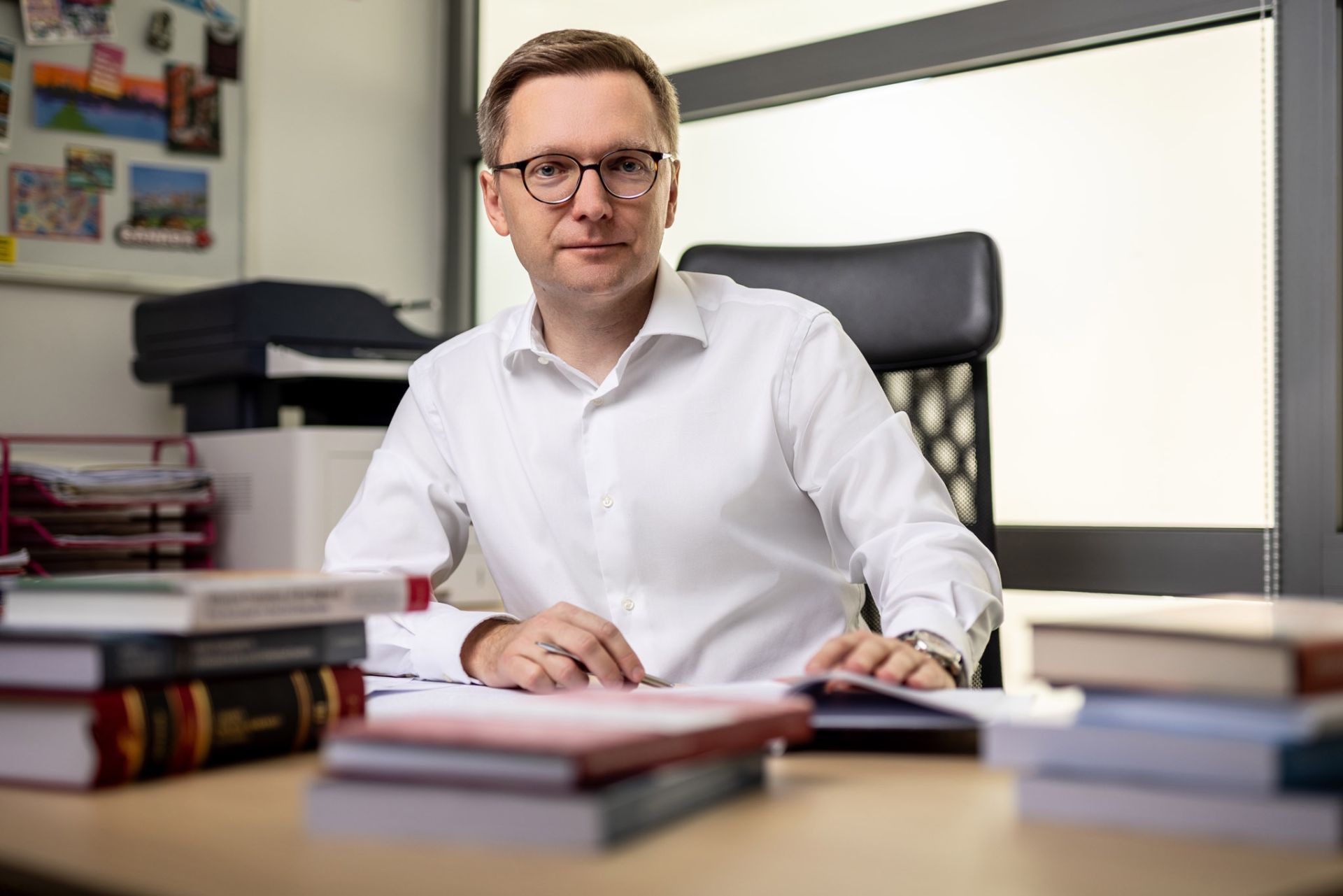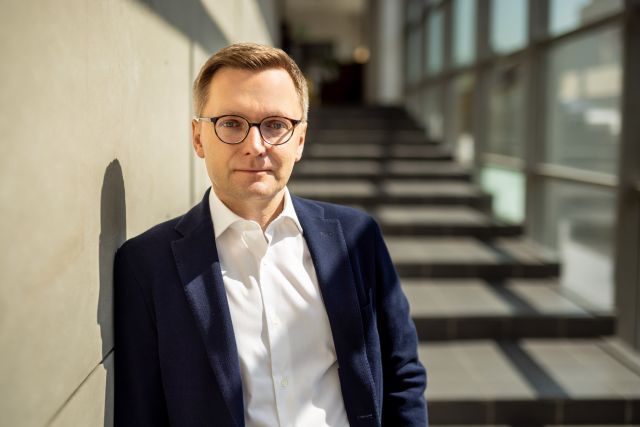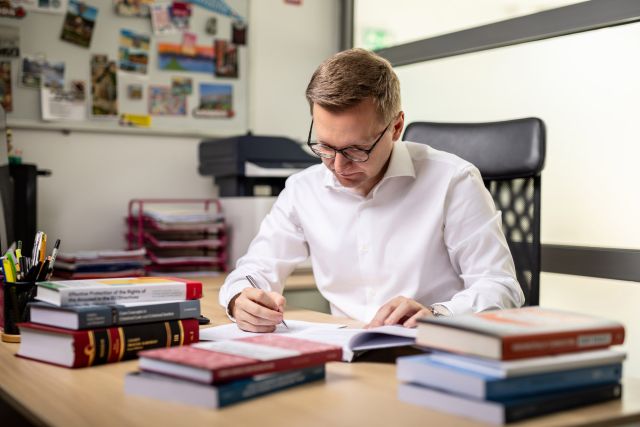Principal Investigator
:
dr hab. Wojciech Jasiński, prof. UWr
University of Wrocław
Panel: HS5
Funding scheme
: OPUS 26
announced on
18 September 2023
The aim of the project is to establish how the right not to incriminate oneself should be understood in the digital era. Although this right is treated in national legal systems and under international law as a fundamental fair trial right, in practice its purpose, scope and applicability have become a matter of numerous controversies in the last few decades. The digital revolution and its influence on evidence gathering have only multiplied these doubts, which refer to, e.g., whether compelled decryption of data violates the nemo se ipsum accusare tenetur principle. Since the concept of the right not to incriminate oneself has become obscure, there is a pressing need for its clarification.
 dr hab. Wojciech Jasiński, photo Łukasz Bera
The challenges brought by the digitalisation of everyday life create a perfect opportunity to reconsider the original rationale, role and meaning of the right not to incriminate oneself. In order to give a comprehensive and convincing answer to how the right not to incriminate oneself should be understood in a digitalised reality, it is necessary for the first step to verify what was the original concept of the right in question, its foundations and axiology. In the second step, the evolution of the understanding of the right not to incriminate oneself before the digital era will be studied in order to establish if the criminal justice systems remained true to their original assumptions, or whether the theory and practice started to diverge from the original. At the final stage of the research, it will be verified whether the original assumptions regarding the right not to incriminate oneself are still valid in the 21st century or if they need to be reinterpreted to answer the challenges we are facing in a world of rapid scientific and technological development.
dr hab. Wojciech Jasiński, photo Łukasz Bera
The challenges brought by the digitalisation of everyday life create a perfect opportunity to reconsider the original rationale, role and meaning of the right not to incriminate oneself. In order to give a comprehensive and convincing answer to how the right not to incriminate oneself should be understood in a digitalised reality, it is necessary for the first step to verify what was the original concept of the right in question, its foundations and axiology. In the second step, the evolution of the understanding of the right not to incriminate oneself before the digital era will be studied in order to establish if the criminal justice systems remained true to their original assumptions, or whether the theory and practice started to diverge from the original. At the final stage of the research, it will be verified whether the original assumptions regarding the right not to incriminate oneself are still valid in the 21st century or if they need to be reinterpreted to answer the challenges we are facing in a world of rapid scientific and technological development.
The research will not be limited to a single jurisdiction. The idea is to investigate the topic from a comparative perspective and – if possible – to identify a common understanding or understandings of the right not to incriminate oneself within the legal systems studied. The research will be supplemented with a comprehensive analysis of the relevant international standards regarding the right not to incriminate oneself (Council of Europe, EU law and international criminal law). The research will mainly be based on the analytic and dogmatic method. It will be used to detect the meaning of legal norms contained within the applicable legal acts in the analysed national legal systems as well as in international law. This part of the research will also include a comprehensive study of the legal doctrine and case law analysis in order to present practical applications of the legal norms in question. The comparative method will be used to identify both common elements and differences in understanding the right not to incriminate oneself. An analysis of common law and continental law jurisdictions is planned. As for the common law countries, the focus will be on England and Wales and US federal law. As far as the continental system is concerned, the project will focus on law and practice in Germany and France as well as in Belgium, Italy, Spain and Poland.
Project title: Right not to Incriminate Oneself in the Digital Era. Can New Challenges Help us Find Common Foundations?
dr hab. Wojciech Jasiński, prof. UWr
Wojciech Jasiński is a professor at the Digital Justice Center at the Faculty of Law, Administration, and Economics of the University of Wrocław. He has previously won a scholarship awarded by the French government (Université Paris 1 Panthéon-Sorbonne) and the scholarship of the Polish Minister of Science and Higher Education for outstanding young researchers. His research is focused on aspects of the criminal trial, and particularly the standards of human rights protection in criminal cases, as well as evidence law. He has served as a principal investigator and team member in many international research projects (e.g. CrossJustice, Facilex, funded by the European Commission) and domestic research projects (e.g. Odszkodowanie za niesłuszne pozbawienie wolności – teoria i praktyka [Compensation for Wrongful Conviction – Theory and Practice], funded by the NCN). His habilitation monograph, entitled Nielegalnie uzyskane dowody w procesie karnym. W poszukiwaniu optymalnego rozwiązania [Illegally Obtained Evidence in a Criminal Trial. In Search of the Optimal Solution], won the competition for the Most Useful Book for Legal Practice in 2019.


